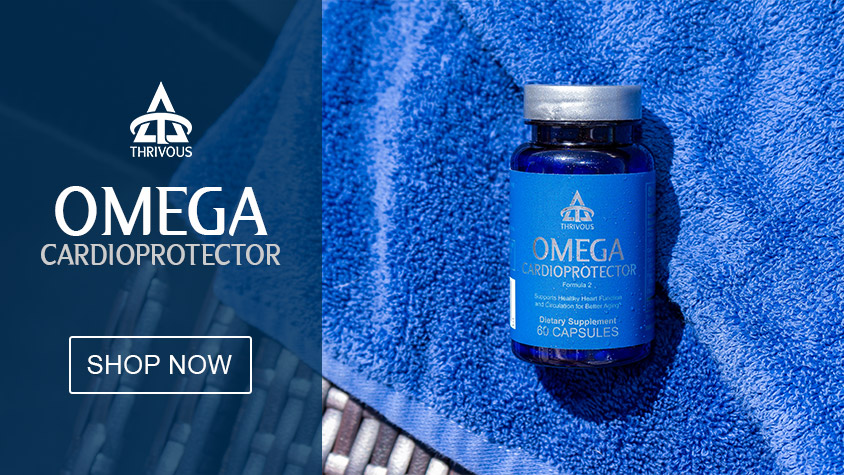You Probably Need More Omega 3

I’ve noticed that many people in my state, Utah, don’t eat fish often. In my nursing homes, the kitchen managers often tell me that patients request an alternate meal when fish is offered.
Fish is a common source of Omega 3. Omega 3 intake is associated with healthy heart function, improved cognitive function, increased brain volume, and increased longevity.
How do you know if you are getting enough Omega 3? In 2004, Harris and von Schaky introduced the Omega 3 Index. The Omega 3 Index measures the concentration of DHA and EPA in the membrane of red blood cells.
These researchers pointed out that even if Omega 3 intake was the same among people, each person is unique with differences in digestion, absorption, tissue distribution, and cellular metabolism. Individual variations in the conversion of alpha-linolenic acid (a plant-derived Omega 3) into EPA and DHA as well as other dietary variables (e.g., calories, Omega 6 consumption) can also influence tissue EPA and DHA levels. All of these factors can change the amount of DHA and EPA a person may need.
Data has shown that an Omega 3 Index of at least 8% is desirable to support healthy heart function. The following three studies were recently published about Omega 3.
Higher Omega 3 intake may support healthy heart function. Predicting the effects of supplemental EPA and DHA on the omega-3 index. Researchers performed a statistical analysis on data from fourteen studies that used Omega 3 supplements and measured the Omega 3 Index. They found that a change in Omega 3 Index was largely based on the form and dose of Omega 3 supplements. Their model predicts that the triglyceride form of Omega 3 may result in a 1% greater increase in Omega 3 Index than the ethyl ester form (although absorption of the ethyl ester form may improve when taken with a meal). And, although there's a lot of variability in response to Omega 3 supplements, 95% of people with a starting Omega 3 Index of 4% may increase their score to 8% by taking high doses of Omega 3 (1750 mg triglyceride form or 2500 mg ethyl ester form) daily for 13 weeks.
Higher Omega 3 intake may help college athletes increase Omega 3 Index scores. The Omega-3 Index in National Collegiate Athletic Association Division I Collegiate Football Athletes. This study was merely an observation, but an interesting one. It looked at the Omega 3 Index of 404 college football athletes. They found that about 34% of athletes had an Omega 3 Index score that was low enough to be considered high risk (<4%) to their heart health, and 66% had a score that was low enough to be considered intermediate risk (4%-8%). None of the athletes had an Omega 3 Index score high enough to be considered low risk for their heart health! The researchers suggested the athletes may benefit from eating more fish or taking Omega 3 supplements.
Response to DHA supplementation doesn’t differ by genetic variation. Triacylglycerol-Lowering Effect of Docosahexaenoic Acid Is Not Influenced by Single-Nucleotide Polymorphisms Involved in Lipid Metabolism in Humans. This study investigated whether genetic variations influence the effect that DHA (an Omega 3) supplementation may have on blood triglyceride levels. Low triglycerides tend to be associated with healthy heart function. Researchers looked at variations of 9 genes involved in DHA synthesis or triglyceride metabolism (APOE, FADS1, FADS2, ELOVL2,ELOVL5, CETP, SCD1, PPARA, and LIPF). 130 participants received a canola oil placebo or a canola oil with DHA supplement (1.0 to 2.5 g DHA each day, determined by body weight) for four weeks. Triglycerides decreased in most participants. And the researchers found no relation between triglyceride response and genetic variation.
Thrivous Omega
Each serving of Thrivous Omega Cardioprotector provides a clinical dose of EPA and DHA. Studies indicate that even low doses over extended periods of time may "significantly protect ... from a rise in serum triglycerides". Combining Omega with meals and taking multiple servings of Omega throughout the day may provide higher levels of protection. Omega also provides clinical doses of Garlic to support healthy cholesterol levels, and French Maritime Pine Bark Extract to enhance circulation.
More Articles
Don't fall behind! Thrivous monitors new human studies of nootropic and geroprotector supplements, so you can make the best decisions based on the latest science. Supplement Science Updates are part of the free Thrivous newsletter. Subscribe now to receive email about human enhancement, nootropics, and geroprotectors, as well as company news and deals.
Read more articles at Thrivous, the human enhancement company. You can browse recent articles in Thrivous Views. See other Supplement Science Update articles. Or check out an article below.
-
CRISPR Enables Smart Programmable Biomaterials
The programmable, CRISPR-responsive smart biomaterials developed at Harvard and MIT (see below) promise to find many clinical and industrial applications. ...
-
Anti-Aging, Nanotech, Medical Bots, and Apples
Many impressive advances in health and life sciences were announced last week. Current research results on the rejuvenation of rat ...



